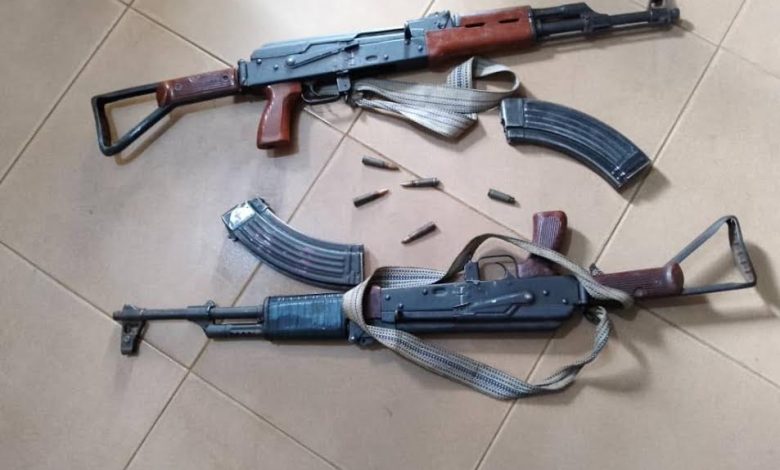
Faced with rising waves of killings and kidnappings in his constituency, Hon. Abubakar Muhammad, member representing Funtua in the Katsina State House of Assembly, has taken matters into his own hands—literally.
The lawmaker, popularly known as “Total,” recently purchased 60 locally-made firearms and handed them out to selected residents across six wards in Funtua, sparking fierce debate over legality, morality, and the long-term consequences of such a move.
A Constituency Under Siege
Katsina, like much of northwestern Nigeria, has become a theatre of terror. Bandits armed with AK-47 rifles roam freely, attacking farming communities, abducting villagers, and imposing “taxes” on rural dwellers. For many residents, survival now feels like a daily gamble.
Muhammad insists his decision was not reckless but necessary:
“My constituents pleaded with me to buy firearms for them to defend themselves. I procured firearms allowed by law for civilians, and I linked them with the Katsina Community Watch Corps for supervision,” he explained during a recent interview.
Viral footage has since shown residents—previously armed with little more than cutlasses and stones—undergoing rudimentary weapons drills alongside the Community Watch Corps.
The Legal Grey Zone
While Muhammad argues that the weapons fall within the law, experts strongly disagree. Nigeria’s Firearms Act explicitly prohibits individuals from owning or distributing firearms without a license approved by the Inspector-General of Police, acting on presidential authority.
Legal practitioner Omale Ajonye notes that Muhammad’s actions contravene both the Act and a 2019 Executive Order signed by then-President Muhammadu Buhari, which revoked all firearm licenses and halted the issuance of new ones nationwide.
“He acquired the firearms without proper approval. That is unconstitutional and illegal,” one security source insisted.
This means, in the eyes of the law, the Katsina lawmaker’s populist solution amounts to an act of vigilantism disguised as policy.
Some may argue that desperate times call for desperate measures. With overstretched security forces struggling to protect rural communities, they say civilians should not be left defenseless against marauding gangs. Residents like Surajo Bako of Karfi echo this sentiment:
“If we had adequate security, there would be no need for self-defence. But since there isn’t, we cannot just wait to be slaughtered. People have the right to protect their lives.”
But analysts warn that arming civilians is a dangerous proposition that could spiral out of control. They fear it will fuel the proliferation of small arms in a state already vulnerable due to porous borders with Niger Republic. The risk of ethnic militias, revenge killings, and misused weapons looms large.
“What chance does a poorly trained villager with a locally made gun have against bandits wielding AK-47s?” one commentator asked. “Instead of neutralising the threat, it could create more bloodshed and instability.”
A Symptom of Systemic Failure
Muhammad’s move highlights a deeper malaise: the erosion of trust in Nigeria’s security architecture. His constituents, like many in the North-West, no longer believe the police or military can guarantee their safety. In such a vacuum, the temptation to take up arms becomes irresistible.
Yet, critics argue the solution lies not in distributing firearms but in tackling root causes—poverty, youth unemployment, corruption, and competition over scarce resources—that allow banditry to thrive. They also point to poor coordination among security agencies and the absence of political will as major obstacles to restoring order.
Hon. Abubakar Muhammad’s firearms project has made him a folk hero to some and a lawbreaker to others. While his gesture reflects the desperation of communities abandoned to their fate, it also sets a precedent that could plunge Katsina into even deeper chaos.
If unchecked, the proliferation of arms among civilians could turn self-defence into a full-blown arms race—where frightened villagers, emboldened bandits, and unregulated vigilantes clash in a cycle of violence.
At its core, the debate is not about whether residents deserve the right to defend themselves—they do. The real question is whether such defence should come through the unregulated hands of desperate politicians, or through a state security system that works.
While the frustration of Hon. Muhammad and his constituents is understandable, his decision to procure and distribute firearms is reckless and unlawful. By stepping into a role reserved for the state, he has undermined Nigeria’s fragile security framework and risked turning rural communities into unregulated militias.
No society can achieve peace by multiplying the number of weapons in civilian hands. The more guns in circulation, the higher the likelihood of misuse, escalation, and irreversible chaos. Nigeria’s security crisis cannot be solved by politicians handing out rifles; it must be addressed by strengthening institutions, investing in intelligence, and confronting the root causes of banditry.
Self-defence is a human instinct, but organised anarchy is not a solution. Katsina needs coordinated security reform, not vigilante militarisation. What Hon. Muhammad has done may win him applause in the short term, but history will judge whether he helped protect his people or pushed them further into peril.
